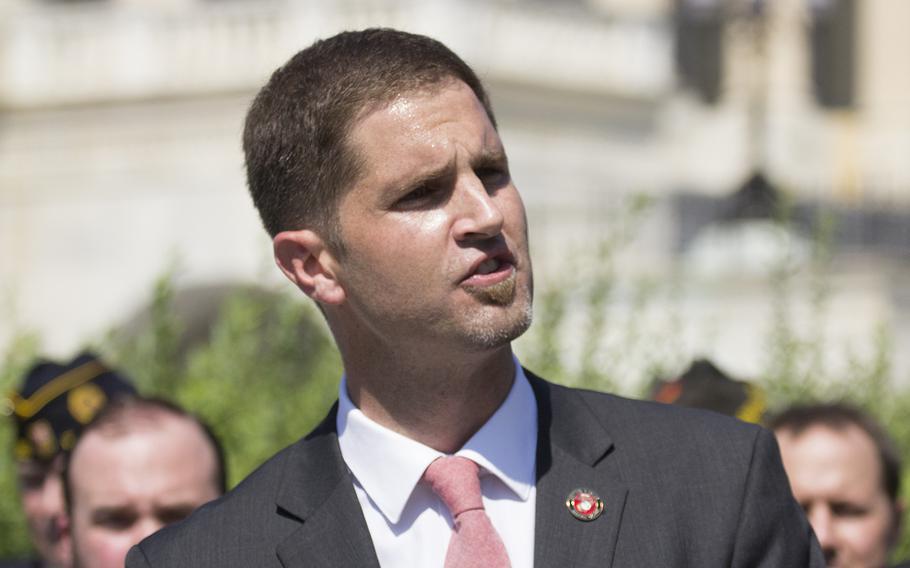
Tyson Manker, a Marine who said he was discharged from the military after suffering from PTSD, calls on then-President Barack Obama to make the Veterans Fairness Act happen with executive action on Sept. 13, 2016. (Stars and Stripes)
WASHINGTON — The Navy has agreed to review and potentially upgrade other-than-honorable discharges given to Navy and Marine Corps veterans dating back to March 2012, as part of a settlement reached this month.
The agreement is pending approval by the U.S. District Court for the District of Connecticut. It orders the Navy Discharge Review Board to reconsider cases in which the board denied upgrades despite evidence that veterans were struggling with post-traumatic stress disorder, traumatic brain injury or military sexual trauma when they separated from the military.
A hearing is scheduled for Dec. 16, during which the court will decide whether to give final approval to the settlement.
The court approved a similar settlement agreement with the Army during the spring. At the time, lawyers with the Yale Law School Veterans Legal Services Clinic, which represented veterans in the case, said they hoped the decision would provide momentum for the Navy case.
The Defense Department instituted a policy in 2017 to give “liberal consideration” to veterans looking to upgrade their other-than-honorable discharges, or “bad paper” discharges, in situations in which a service-related medical disorder could have led to their misconduct. Plaintiffs in the lawsuit argued the Army Discharge Review Board ignored the policy and denied upgrades when they were warranted.
The wrongful discharges go back even further, according to the Government Accountability Office. The GAO has reported the Pentagon didn’t consistently apply previous policies going back to 2011 that required discharge review boards to take mental health issues into consideration.
Bad paper discharges disqualify veterans from receiving certain health and education benefits, as well as preferential hiring and tax breaks.
The lawsuit was filed in 2018 by Iraq War veteran Tyson Manker, who was kicked out of the Marine Corps after being caught with marijuana, which he said he used to self-medicate. He was later denied a discharge upgrade despite being diagnosed with post-traumatic stress disorder.
The Veterans Legal Services Clinic is seeking other veterans who might be part of the class-action settlement. Veterans affected by the settlement can submit written comments to the court or appear at the hearing Dec. 16 to offer their opinions on the agreement. The clinic is asking those veterans to go to mankersettlement.com to learn if they meet the criteria for the case.
In addition to reviewing cases going back to 2012, the settlement would require the Navy to allow veterans with bad paper discharges going back to 2001 to reapply for a discharge upgrade.
As part of the agreement, veterans also will be allowed to participate in their review board hearings through video conferencing. Veterans are required now to appear in person in Washington if they want to argue their case.